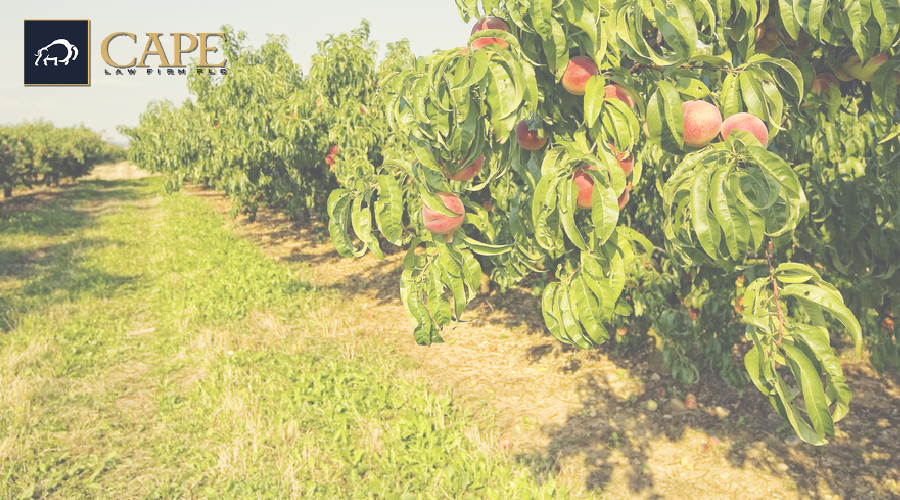Dicamba Gets a New Trial
(but not the one it wanted)
Last week, the U.S. 8th Circuit Court of Appeals issued its decision in Monsanto’s & BASF’s appeal of a jury verdict in the Bader Farms case awarding $265 million for dicamba damage to Bader Farms peach orchards in southeastern Missouri. The appellate court upheld almost every aspect of the verdict, with the exception of the joint award of punitive damages against Monsanto and BASF – those were remanded for a new trial.
The lawsuit was brought by Bader Farms, the largest peach producer in Missouri, over damage to its peach orchards caused by dicamba herbicide. In 2015, Monsanto launched its X-tend crop system which involves the use of dicamba herbicide in dicamba-tolerant soybeans and cotton to control weeds in those crops. The chemical volatility of dicamba herbicides, coupled with a significant increase in use with the X-tend system, has resulted in unprecedented damage to crops and plants that are susceptible to the herbicide, including Bader’s peach orchards. After a 3 week trial, a jury awarded Bader Farms $15 million in compensatory damages and $250 million in punitive damages. The trial court reduced the punitive damages to $60 million in post-trial motions.
The 8th Circuit rejected the bulk of the arguments made by Monsanto and BASF on appeal.
- While Monsanto/BASF argued that Bader could not prove causation because it could not identify the whose dicamba herbicides injured the trees, the court held that the “injury-producing agent” was the dicamba-tolerant seed which was sold solely by Monsanto. But for the seed, neighboring farmers would not have sprayed dicamba during the growing season.
- Monsanto/BASF also argued that when the X-tend system was launched in 2015, EPA had not approved dicamba for in-crop use with the system, and therefore all in-crop dicamba spraying at the time was illegal. In short, Monsanto/BASF blamed third-party farmers for illegally spraying dicamba as the proximate cause of the injuries. The court declined to overturn the jury’s verdict on this issue, and pointed to the fact that Monsanto had direct relationship with the third-party farmers through grower’s licenses and technology-use terms.
- Monsanto/BASF also argued that Bader’s damages were too speculative, but the court found that Bader had presented adequate evidence based on tree life span, historical yield, and university budgets, among other things.
- The court reversed the jury’s finding that Monsanto and BASF were in a joint venture and therefore jointly liable because Monsanto alone controlled the decision to commercially launch the X-tend system. However, the court upheld the jury’s verdict that Monsanto and BASF engaged in a civil conspiracy and were jointly liable for Bader’s compensatory damages. The court pointed to evidence that both Monsanto and BASF pursued marketing campaigns urging farmers to plant X-tend seed as “protection from your neighbor’s” illegal spraying.
- The court also found that Bader had presented clear and convincing evidence that Monsanto and BASF were recklessly indifferent to the likelihood of damages by the X-tend system, allowing the jury to consider punitive damages.
However, the 8th Circuit ordered a new trial on punitive damages because the jury awarded those damages jointly against Monsanto and BASF. Under Missouri law, where punitive damages are sought against multiple defendants, the jury is required to consider each defendants’ actions separately. Since the jury lumped Monsanto and BASF together in the punitive damages award, the court ordered a new trial on that issue so that the jury can consider how much each should be liable for.





